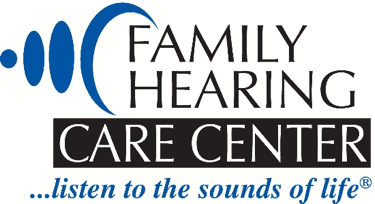
A Link between Hearing Loss & Secondhand Smoke
Are you a smoker? Most people who smoke started smoking when they were teenagers or were around older adults who smoked. It’s a hard habit to quit due to its addictive properties. Still with all the known health risks, it is always an uphill battle tackling the daunting task of trying to quit. Smoking is not only linked to lung cancer but the Center for Disease Control and Prevention has a very long list of health concerns which include “heart disease, stroke, lung diseases, diabetes, and chronic obstructive pulmonary disease (COPD), which includes emphysema and chronic bronchitis. Smoking also increases risk for tuberculosis, certain eye diseases, and problems of the immune system, including rheumatoid arthritis.” What’s more alarming is that if you smoke you are not only putting yourself at risk but those around you.
The CDC explains “Secondhand smoke exposure occurs when people breathe in smoke breathed out by people who smoke or from burning tobacco products. There is no safe level of exposure to secondhand smoke; even brief exposure can cause serious health problems and be deadly.” To add to the long list of health concerns connected to smoking and secondhand smoke, a recent study has found that it could contribute to higher rates of hearing damage in people of all ages.
What is Secondhand Smoke?
It’s not just about you. Sure you can make any choice about your health, but you have to consider the effects of everyone you share space with. This is particularly true if you are a parent or caretaker to children who have no choice where they live. Secondhand smoke contains a long list of harmful and poisonous gasses and chemicals, which include hydrogen cyanide -employed in chemical weapons, carbon monoxide –found in in car exhaust, butane – used in lighter fluid, ammonia – found in household cleaners, and toluene – a chemical used in paint thinners.
Studies on Secondhand Smoke and Hearing Loss
A significant study was published in 2018 by the National Center for Global Health and Medicine in Japan, which explored the impact to the health of people exposed to secondhand smoke including hearing loss and was one of the largest studies ever published of this nature. Based on a large test group of 50,195 people between the ages of 20 – 64 without hearing loss at the start of the study, it included smokers and nonsmokers. The test group was observed over eight years and at the study’s completion it was determined that 5,100 study participants had developed hearing loss. This means that smokers were 60% more likely to develop high frequency hearing loss and 20% more likely to develop low frequency hearing loss.
The study also found that the more you smoke, the greater the degree of hearing loss you are likely to suffer. Those who smoked approximately 10 cigarettes daily on average were 40% more likely to suffer hearing loss, while those who smoked 20 or more (over a pack a day) increased their risk of hearing loss by 70 percent!
Studying the Effects of Secondhand Smoke on Hearing Loss
You don’t have to be a smoker to suffer the effects of hearing loss. In a separate study from New York University in 2011, researchers examined the risk of secondhand smoke on hearing loss, specifically for people in the range of preteens and teenagers. The test group included 1,533 participants, between the ages of 12-19 years old, who did not smoke but lived with a smoker. Based on the findings the study determined that participants who were exposed to secondhand smoke were 50 percent as likely to develop low and high frequency hearing loss.
Nicotine is Ototoxic
Ototoxic chemicals are chemicals which can injure the tiny hair-like cells of the inner ear which are the sole delivery system for sound from the ears to the brain. Nicotine, one of the key chemical components of tobacco products is not only addictive but along with carbon monoxide, these chemicals are classified as ototoxic. Nicotine constricts blood vessels which can restrict blood flow to the inner ear, compromising the integrity of the cells of the inner ear. Both nicotine and carbon monoxide can also disrupt the process of regulating neurotransmitters, confusing the process when the brain does receive sounds.
Protecting Your Hearing Health
If you smoke it may be time to schedule a hearing exam for not only you but the children you care for. Contact us today to schedule your next hearing exam.
